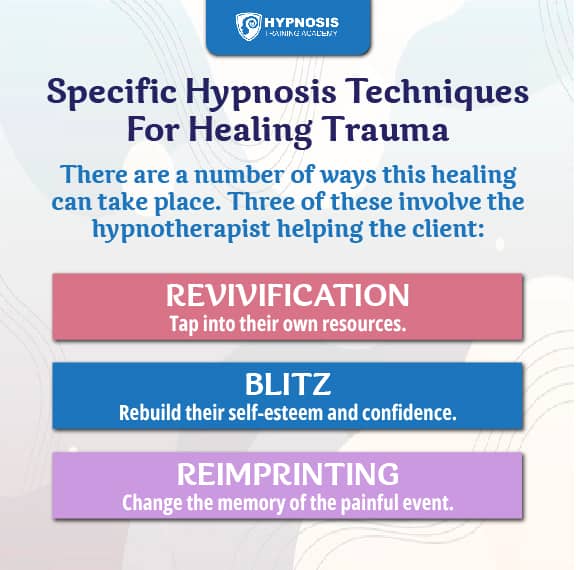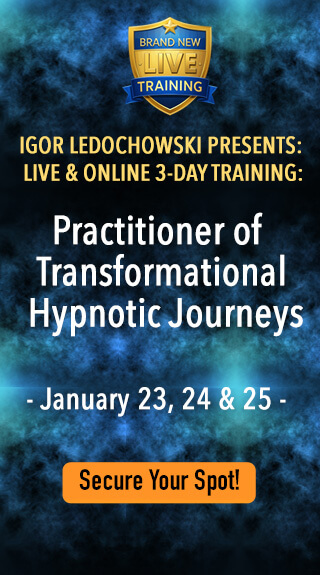According to some authorities on the subject, domestic abuse is becoming an epidemic.
And for anybody who finds themselves in an abusive relationship, there’s only one thing they can do.
Get out of it.
Of course, that’s only half the problem.
The other half involves dealing with the aftermath, the trauma, and the physical, mental and emotional scars that abusive relationships leave behind.
Fortunately, recovering from abusive relationships with hypnosis is one of the most efficient methods available.
That makes sense because hypnotherapy has a long track record of helping people deal with trauma.
Whether it’s connected to an event that happened in childhood, a phobia developed over the years or abuse suffered in adulthood.
It doesn’t matter where, when or how the trauma started or progressed.
Hypnotherapy has the power to help anyone recover from any traumatic event, including the trauma resulting from an abusive relationship.
The more common term for this kind of abuse is domestic abuse, so called because it tends to take place in the home, which ironically should be one of the safest places of all.
This article will look at how hypnotherapy can be used to help you heal as well as giving you some strategies to cope with the aftermath.
Before doing that, however, let’s find out more about the nature of abuse and its origins.
Where Does Domestic Abuse Come From?
In an article on the NCBI website, author David B. Wexler’s study references a model by researchers Dutton and Golant. The model highlights background factors that can lead to a boy becoming a “man who batters”, as they put it.
According to the article, these factors come from three potential sources:
- 1. Being shamed, especially by your father
- 2. Having an insecure attachment to your mother
- 3. Directly observing abuse in the home
Shaming can take the form of physical and/or verbal violence and of being criticized, embarrassed and humiliated in public. The father is basically saying that their child is not good enough and can never meet with their approval.
Children who are shamed in this way feel useless and worthless. They shut off their emotions in order to protect themselves from being hurt.
They become oversensitive to humiliation and tend to overreact. While they might be grown men, they still long for approval and affection, but they don’t know how to ask for it.
As a rule, people who’ve been abused in this way aren’t able to describe how they feel and probably don’t understand where those feeling are coming from.
On top of the abuse, a child in this situation will not always get the emotional support they need from their mother. This can leave them ambivalent toward women in general, seeing them as weak, untrustworthy and unreliable.
It often results in men who are anxious about being abandoned by the female figure in their lives. To counteract this feeling, they develop the need for control.
Research shows that males who witness abuse in the home are up to four times more likely to assault their adult female partners.
While spouse abusers can naturally be of either sex, the majority of documented and reported cases are by far of the male-to-female variety.
The study gives you a clear idea of how a domestic abuser develops and why they behave in the way they do. But once the relationship has ended, as it must eventually do, how can you recover?
How can hypnotherapy help you put it all behind you so you can get on with your life and move forward?
How Hypnotherapy Can Help You Recover From An Abusive Relationship
As this article reports, hypnotherapy is a highly effective tool for helping anybody deal with the fallout from an abusive or toxic relationship. It goes on to list the benefits hypnotherapy has to offer, which include the following.
- It cleanses negative thoughts – in an abusive relationship it’s common to internalize all the hurtful and unkind things the other person says about you. Hypnotherapy makes it possible to deal with these negative thoughts and feelings on a deeper level so you can banish them from your life for good.
- It relaxes and rejuvenates – it’s hard to be relaxed when you’re stressed and anxious, even after the relationship has ended. Hypnotherapy provides you with a deep and refreshing relaxation that lets your worries simply melt away, often described as floating on a cloud. It’s a great way to distract yourself from any residual pain and restore that feel-good factor.
- It provides a safe environment – in order to confront your feelings and deal with your emotions, you need to feel safe and protected. Hypnotherapy gives you the space you need to relax, refresh yourself and put things into perspective without worrying about whatever might be going on in the outside world.
- It helps let go of shame – it’s natural to blame yourself for getting mixed up in an abusive relationship, all of which might result in feelings of shame. But shame is a negative and destructive emotion that will prevent you from healing and from moving forward with your life. Hypnotherapy will help you restore your dignity and sense of worth so that you can love yourself for who and what you truly are.
- It can rebuild self-esteem – your self-esteem usually takes a hammering in an abusive relationship. You’re always being put down and humiliated so it’s natural that you might feel worthless and like you’re only getting what you deserve. Hypnotherapy can help you understand where these feelings come from and enable you to get back in touch with the real you underneath.
- It helps break unhelpful patterns – every abusive relationship includes a number of patterns, such as the build-up of tension and the ultimate explosion of violence. Hypnotherapy helps you to recognize these and other patterns so you can interrupt them, and also so you can begin to establish newer, healthier patterns in your everyday life.
- It helps you heal from the inside out – hypnotherapy is all about healing, helping you relax so that you can go inside yourself and make yourself whole again. It gives you the time and space you need to focus on the things you value in your life, making it possible for you to move forward and put the past behind you.
According to a Sacred Stream case study, it’s common for survivors of abuse to put up walls or defenses around their feelings and experiences. These barriers might help to shield the person from those painful memories, but they also prevent them from integrating and resolving the emotions and experiences fully.
Hypnotherapy is the key to tapping into the unconscious mind so you can break down those barriers, become aware of those thoughts and feelings and transform them so they’re no longer holding you back.
But how does hypnotherapy actually achieve all of that?
The folks at the Wellness Institute suggest that 5 separate processes need to occur in order for hypnotherapy to encourage this kind of healing, namely:
1. The client needs to feel safe enough to open up, letting their vulnerability show so they can properly heal.
2. You need to communicate with the client according to the way they process information, i.e. visually (I see what you mean), aurally (I hear what you’re saying) or kinesthetically (that feels right to me). Some people are more literal while others respond better to metaphors and symbols.
3. The client needs to relive the trauma but “with corrections” in order to prevent the memory from the past invading the present. For example, while one man might have been abusive, all men are not the same.
4. While dealing with the trauma it’s important to pace the client. You can do that by allowing time for reflection and relaxation. It’s also vital that you help the client access their own internal resources that will help them find the strength to resolve issues quicker and more efficiently.
5. You need to help the client unlock the memories of the trauma so they are able to deal with them in the here and now.
Many of those items seem like simple common sense, but they become more powerful when accessed in the guise of hypnotherapy.
So the next question that needs to be answered is this: which specific hypnosis techniques are best for dealing with trauma in general and domestic abuse specifically?
Specific Hypnosis Techniques For Healing Trauma

Where any kind of trauma is concerned, hypnotherapy strives to help the person heal their wounds, whether physical, mental or emotional.
There are a number of ways this healing can take place. Three of these involve the hypnotherapist helping the client:
- Tap into their own resources
- Rebuild their self-esteem and confidence
- Change the memory of the painful event
Revivification
It involves immersing the person in a vivid memory so that they can relive the experience in real-time. The idea is to take them back to a time before they experienced the trauma.
This helps them discover the fact that they had the resources they needed to cope with the trauma in the past, such as inner strength, courage and self-belief.
The trick is to convince them that they can now bring those resources forward to help them in the present.
Blitz
A “blitz” around specific trance themes such as relaxation, comfort and peace.
Where recovery from an abusive relationship is concerned, hypnotic themes might include things like confidence, self-belief, self-worth, self-value, the person’s good points, and so on.
It’s likely they’ll have people in their life who rely on them, who respect them, and who like or even love them. These points all demonstrate that they have a lot to offer going forward and should not be so hard on themselves.
Reimprinting
A technique similar to revivification, with the added feature of changing the memory. The idea is to take the client back to a time in their past and change the memory for the better.
Changing the memory helps to let go of any issues associated with the memory, making it possible for the client to move forward in a constructive and positive way.
Reimprinting typically involves 3 stages:
1. Identifying the memory causing the problem
2. Fixing the problem by giving them the resources they need to overcome it
3. Changing the client’s perception of other people associated with the memory
There are other techniques that may also be of use, and a seasoned hypnotherapist will naturally make use of hypnotic language and power words to create irresistible suggestions.
Another potent technique to speed up recovery from abuse is by way of self-hypnosis, which any qualified hypnotherapist can help you learn. You might also like to check out this Hypnosis Training Academy article and infographic on the subject:
How To Hypnotize Yourself: Discover The Easy 6-Step Self Hypnosis Formula
And as this article explains, self-hypnosis is a particularly effective tool for healing trauma.
It lets you reprogram your unconscious mind, the place where fears and memories are stored.
A daily self-hypnosis routine will help you relax and feel safe, giving you the strength to face the day. It’s the ideal way to restore your sense of balance so that you can continue to heal yourself from the inside out.
The Swiss psychiatrist Carl Jung is quoted as saying: “I am not what happened to me, I am what I choose to become.”
And with the power of hypnosis on your side, your options are virtually limitless.
Conclusion
Experts report that domestic abuse is becoming an epidemic.
Survivors of abusive relationships have to deal with the aftermath, the physical, mental and emotional trauma these relationships can leave behind.
Hypnotherapy has a long track record of helping people deal successfully with and recover from trauma.
Studies show that abusers develop as a result of exposure to 3 factors early on in life:
1. Being shamed by their father
2. Having an insecure attachment to their mother
3. Observing abuse in their home
Children who are shamed feel useless and worthless, shutting off their emotions in order to protect themselves. They’re easily humiliated, longing for approval but unable to know how to ask for it.
Males who witness abuse are up to four times more likely to assault their adult female partners.
Hypnotherapy is an effective tool for dealing with the fallout from an abusive or toxic relationship because it can:
- Cleanse negative thoughts
- Relax and rejuvenate
- Provide a safe space to work things out
- Help let go of shame
- Rebuild self-esteem
- Break unhelpful patterns
- Heal from the inside out
It’s common for survivors of abuse to put up barriers around their feelings and experiences to protect them from painful memories, but those barriers keep them from integrating and resolving them fully.
Hypnotherapy helps break down those barriers to transform negative thoughts and feelings so they’re no longer holding you back.
There are a number of ways this healing can take place, where the hypnotherapist helps the client to tap into their own resources, rebuild their confidence and change memories of painful events.
Specific hypnosis techniques used may include:
- Revivification
- Blitz
- Reimprinting
Self-hypnosis is another effective tool for healing trauma that can be applied anytime and anywhere, helping to reprogram the unconscious mind where fears and memories are stored.
All in all, hypnotherapy has been proven to be one of the most effective and highly successful methods for helping people recover from an abusive relationship.








![[ADVANCED GUIDE] How To Master Hypnotic Regression Therapy - Part I: Essential Principles To Profoundly Transform Your Subject’s Emotional Trauma [ADVANCED GUIDE] How To Master Hypnotic Regression Therapy - Part I: Essential Principles To Profoundly Transform Your Subject’s Emotional Trauma](https://hypnosistrainingacademy.com/wp-content/uploads/2016/09/hypnotic-regression-therapy-essential-principles.jpg)



![Yogic Breathing For Hypnosis: 3 Easy Techniques To Ground & Relax Your Clients Before Inducing A Hypnotic Trance [Includes Infographic] Yogic Breathing For Hypnosis: 3 Easy Techniques To Ground & Relax Your Clients Before Inducing A Hypnotic Trance [Includes Infographic]](https://hypnosistrainingacademy.com/wp-content/uploads/2019/05/yogic-breathing-for-hypnosis.jpg)

